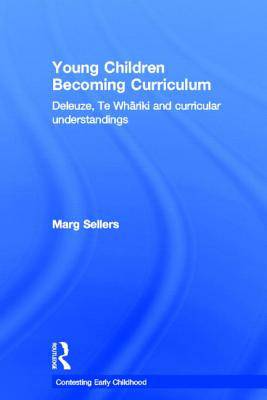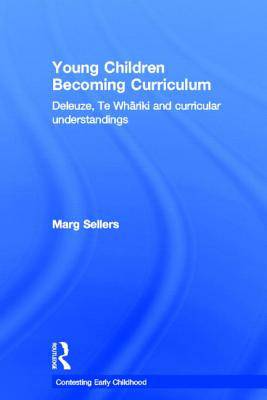
- Retrait gratuit dans votre magasin Club
- 7.000.000 titres dans notre catalogue
- Payer en toute sécurité
- Toujours un magasin près de chez vous
- Retrait gratuit dans votre magasin Club
- 7.000.0000 titres dans notre catalogue
- Payer en toute sécurité
- Toujours un magasin près de chez vous
Description
This book contests a tradition and convention in educational thinking that dichotomises children and curriculum, by developing the notion of re(con)ceiving children in curriculum. By presenting an innovative research project, in which she worked with children to share their understandings of the internationally renowned Te Whāriki curriculum, Marg Sellers explores what the curriculum means to children and how it works, as demonstrated in games they played. In generating different ways for thinking, the author draws upon her work with the philosophical imaginaries of Gilles Deleuze and Felix Guattari, whose ideas shape both the content and the non-linear structure of this book. Topics covered include:
- Rhizomes, rhizo-methodology and rhizoanalysis;
- Plateaus;
- De territorialising lines of flight;
- Dynamic spaces;
- The notion of empowerment.
This assemblage of Deleuzo-Guattarian imaginaries generates ways for thinking differently about children's complex interrelationships with curriculum, and opens possibilities for re(con)ceiving - both reconceiving and receiving - children's understandings within adult conceptions of how curriculum works for young children. This book will be of interest to early childhood students, scholars and practitioners alike, also appealing to those interested in philosophical, theoretical and practical understandings of curriculum in general.
Spécifications
Parties prenantes
- Auteur(s) :
- Editeur:
Contenu
- Nombre de pages :
- 224
- Langue:
- Anglais
- Collection :
Caractéristiques
- EAN:
- 9780415536103
- Date de parution :
- 01-08-14
- Format:
- Livre relié
- Format numérique:
- Genaaid
- Dimensions :
- 156 mm x 234 mm
- Poids :
- 512 g

Les avis
Nous publions uniquement les avis qui respectent les conditions requises. Consultez nos conditions pour les avis.






